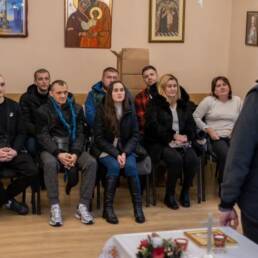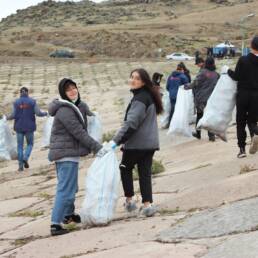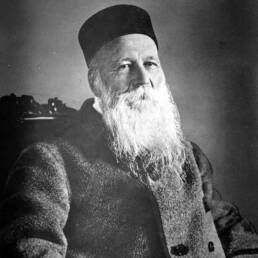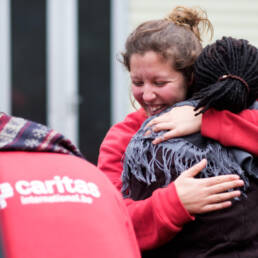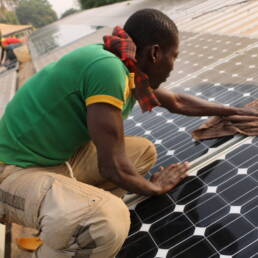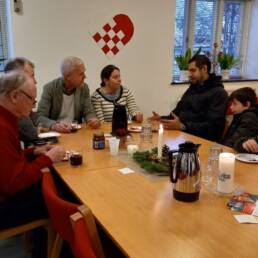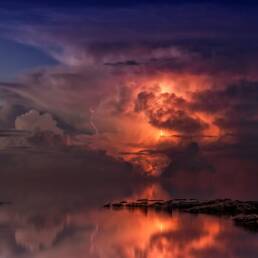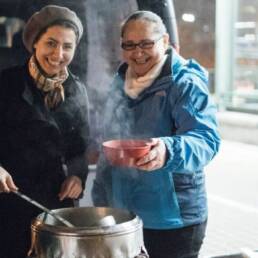Author
Clara Alibert
Advocacy Officer Right to Food and Climate Change
Secours Catholique-Caritas France
‘If an indigenous person feels their territory faces a danger, they’re capable of anything. There’s a price to pay for our land. We’d protect it from death, like we would our mother.
That’s how the indigenous person feels about nature: the mountain and the forest give us everything. There’s interdependence between nature and the indigenous person.’ That’s what Romero, indigenous Awajun from the Bajo Canampa community in Peru told us when we were in his community. The link with nature described by Romero calls us to reconsider the interactions between humans and nature.
Pope Francis’ encyclical letter Laudato Si’ On Care for Our Common Home (2015) also calls for a rethinking of the interactions among human beings, society, and the environment.
We are faced not with two separate crises, one environmental and the other social, but rather with one complex crisis which is both social and environmental
Pope Francis, Laudato Si’ 139
If ‘the climate is a common good, belonging to all and meant for all,’ (23), the impact of climate change affects the most vulnerable.
On this basis, Pope Francis severely criticizes the Western model of life and the capitalist economic system, which he calls ‘self-destructive.’ According to him, the modern age is characterized by ‘an excessive anthropocentrism which today, under another guise, continues to stand in the way of shared understanding and of any effort to strengthen social bonds.’ (116).
For him, integral ecology is the new paradigm of justice. It proposes an ecology that takes into account the social, economic, environmental, cultural and spiritual dimensions, because ‘everything is interrelated.’ He thus calls for an ‘ecological conversion’. He states that ‘Nature cannot be regarded as something separate from ourselves or as a mere setting in which we live.’ (139). It is essential, he says, to pay special attention to indigenous communities, who ‘should be the principal dialogue partners’ because ‘for them, land is not a commodity but rather a gift from God and from their ancestors who rest there, a sacred space with which they need to interact if they are to maintain their identity and values.’ (146).
Pope Francis’ teachings were at the beginning and centre of our work when designing a new study. ‘Between resistance and adaptation to change. Resisting, adapting, proposing: How six indigenous communities from Latin America and Asia deal with threats to their territories and their lifestyles’ (available in French, English and Spanish) is a study conducted by the Secours Catholique-Caritas France and six of our international partners: Caritas Bangladesh, KMSS Loikaw in Myanmar, MASS in India, CENDI in Vietnam, SAIPE in Peru and CIPCA in Bolivia.
Started at the end of 2018, the study wanted to link the concerns of Caritas France’s international partners and the demands for advocacy in the face of an increasingly worrying climate emergency.
While we are going through a crisis that is environmental, social, economic, and political, indigenous peoples are alerting us to the threat that the globalized economic system poses to their ways of life and their territories. Indigenous peoples represent only 5% of the world’s population but 15% of the number of people living in extreme poverty in the world. They generally face exclusion, discrimination, poverty, population pressure, land fragmentation, the impact of climate change and the need for cash. The promotion of the extractivist model in their territories has also caused a profound cultural, social, economic and identity disruption in these societies. All the communities visited said to us how climate change is affecting their lives.
As Pope Francis remarks, whether in Asia or Latin America, the majority of the communities that participated in the study presented nature as a divine gift and have a singular relationship to the land and to nature. In these representations of the world, nature is constitutive of identity, humans belong to the earth and find their place as part of a larger whole. Their worldview and practices emphasize a strong link between nature and culture, territory and identity, individual and collective, economy and solidarity, tradition and modernity, echoing the concept of integral ecology. Indigenous peoples inspire us and oblige us. Faced with a system that exhausts the planet, we must collectively reinvent our relationship with the World.
This threat to indigenous peoples is also ours! Because they, like us, are all confronted with this dilemma: You would not let your land die.


